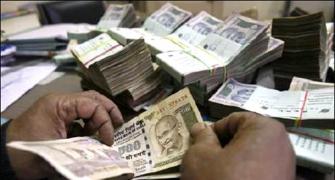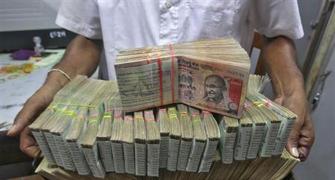A better system of operating central and state PSEs, and indeed all commercial activities of the government, would require eliminating the current system that oversees them, says Laveesh Bhandari.
 An interesting debate is being played out in the periphery of India's political battles.
An interesting debate is being played out in the periphery of India's political battles.
It started with the Comptroller and Auditor General of India (CAG) releasing a report on Gujarat State Petroleum Corporation (GSPC) for losing out thousands of crores in the gas fields of KG basin.
The United Progressive Alliance found that to be enough to come up with a series of allegations, the latest coming from the former petroleum minister, Jairam Ramesh.
In all of this, the critical issue is not so much of corruption or even of any undue favours but that of why money was spent on an activity that has not borne fruit yet.
Simply put, GSPC, which was primarily a gas trading firm, decided to go in for vertical integration and bid for some areas to explore in the KG basin.
It won the bid and in the initial tests struck what appeared to be very high levels of gas.
Based on this it took on thousands of crores of loans and went in for exploration and commercialisation.
That did not pay off as per schedule, and the project is delayed by about three to four years.
The company claims that delays occur in exploration activity and the potential returns are massive enough to justify such risks.
The Opposition claims otherwise. The accountants at the CAG also did not like what they saw because all that money spent was not giving a return as was predicted.
Since this is about Gujarat and the prime minister's past job, it has also become more political than it otherwise would have.
All in all, the GSPC's KG gas field experience is a classic case highlighting the key facets of public sector enterprise (PSE) governance and the challenges within.
But fortunately there is a difficult but clear way forward not only for the GSPC but also for all state and central PSEs and government departments with a purely commercial orientation.
The bodies that monitor PSEs are designed essentially to monitor the functioning of the government and not commercial activities.
The CAG, the CVC, Parliamentary Committees, etc. are neither mandated nor have the skills to look into financial or operational efficiencies of commercial enterprises leave alone technology issues.
Nor are they the right entities to look into strategic concerns of expansion or even divestment of various product or service lines.
All of this is a normal part of commercial operations but such overseeing is of extremely poor quality for PSEs.
Economics provides no reason for the existence of public sector enterprises or commercial activities of the government.
A combination of tax and subsidies supplemented by regulations can achieve most economic or non-economic outcomes we desire from PSEs; but in India political economic considerations favour government presence in commercial activities.
What is India to do, where political economic considerations favour retaining a large PSE base?
A better system of overseeing PSE performance is critical.
Dependence on the CAG's accountants or committees of politicians or bureaucrats or even the judiciary is the worst method of adequately monitoring, directing or controlling PSEs.
We can surely do better than this for a sector that continues to be the largest segment of India's organised sector.
And the scale is more than massive. There are about 250 central public sector enterprises, and about 1,500 state-level public enterprises; then there are the railways establishments and the whole of the postal department, which have a largely commercial function; and also financial organisations that range from SBI to LIC.
Altogether the public sector including government claims about 18 million employees.
Add unreported workers such as contract workers or those through agencies and subtract those in the non-commercial departments - and we have upwards of 10 million employees in such entities.
This is more than all of the organised private sector employment in the country.
Value-added by central PSEs is reported to be about six per cent of the GDP.
Add value-added by financial institutions, railways, posts, and the massive scale of state-level PSEs and we have a more than a modest proportion of India's GDP originating in this sector.
The point is that with such scale, the least India needs to do is run its commercial activities properly and send the right signals and directions to their managers.
The stock exchange and its battery of analysts conduct one type of monitoring function, and since they also have to put money where the mouth is, there is some credibility to their monitoring.
By disinvesting some equity in all central and state PSEs not only do we incentivise ongoing analysis of their functioning, the managers will also get relatively decent signals on their own performance from outside entities. But that is obviously not enough.
A better system of operating central and state PSEs, and indeed all commercial activities of the government, would require eliminating the current system that oversees them.
This will be replaced by a board of independent professionals that is judged on the basis of commercial performance, with all heads reporting directly to this board and not to the ministries.
If we can have independent regulators, we can also have independent super-managers mandated by the government.
The writer is an economist.










